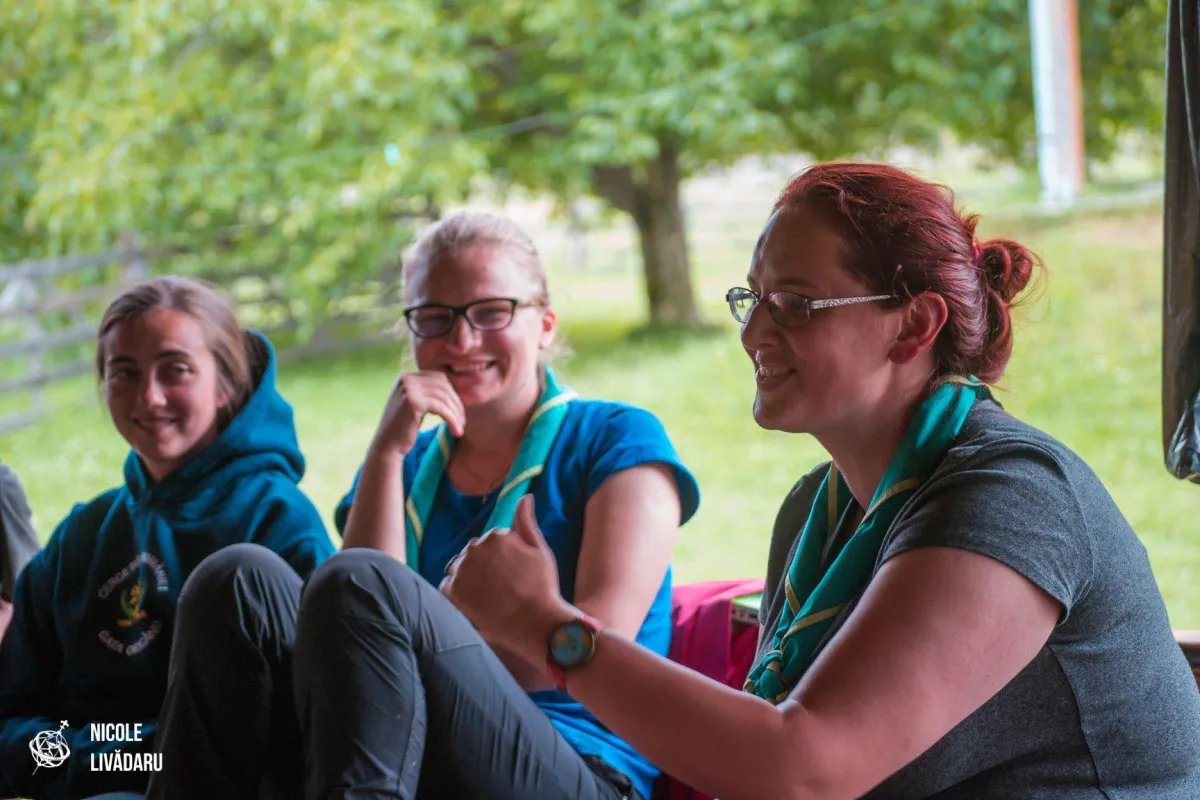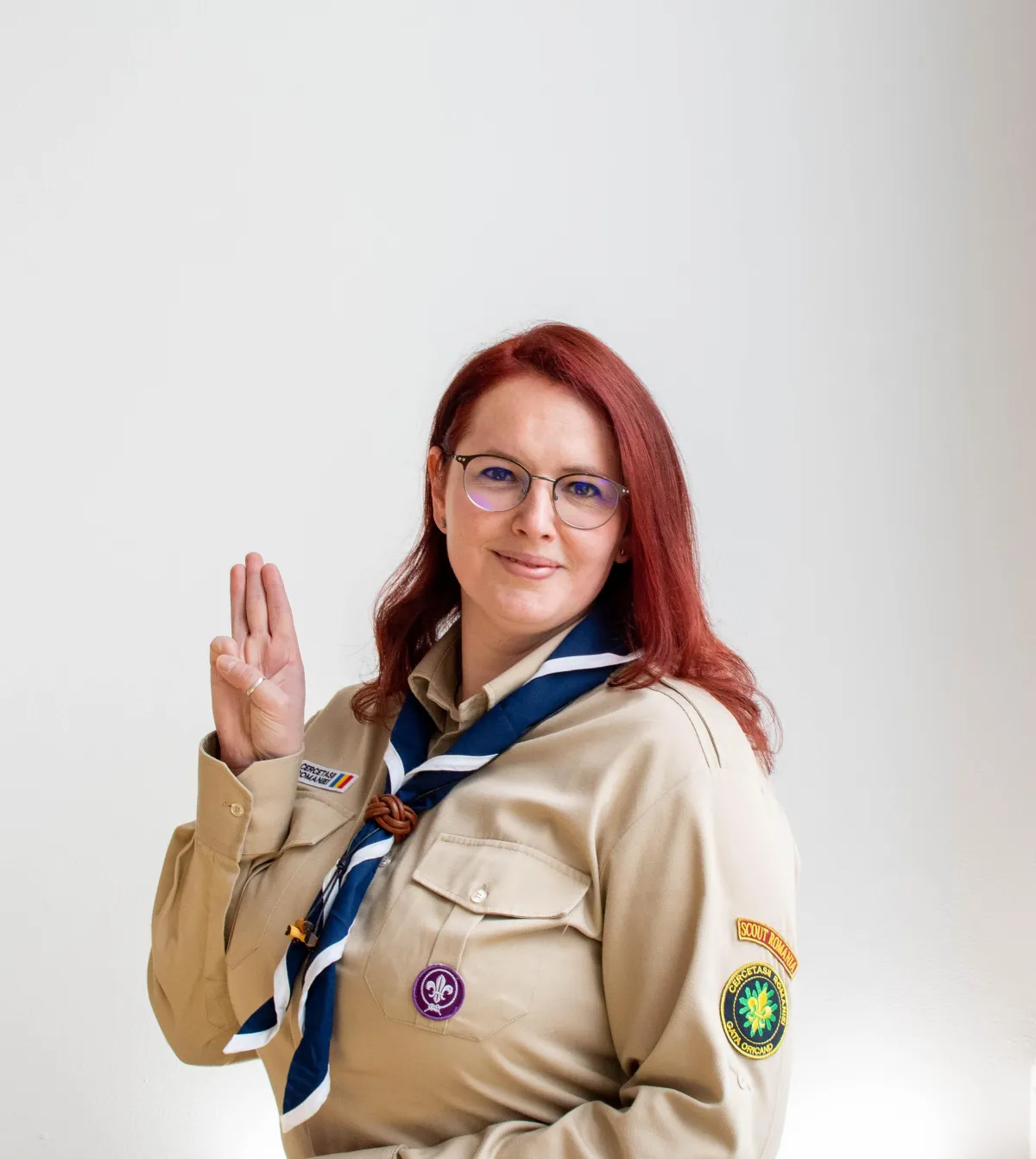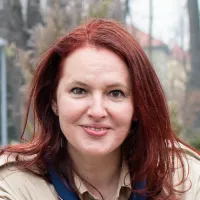Thoughts and perspectives..
Diana Slabu

The educational impact of Jamborees. Reality or illusion?
Jamborees are amongst the most cherished types of events in Scouting and Guiding, as they are great social gatherings, bring out the best of the international dimension of our world movements, and are the birthplace of many international friendships and memories. However, from an educational perspective, are they equally relevant?
In 2024, a new edition of Roverway took place, and during and after this event, an analysis on the educational impact of the event was conducted by the Joint Work teams of WOSM &WAGGGS. They took into account both records and evaluations of previous editions, and especially the opinions of the current generation, young people that participated in the 2024 edition.
One of the results that I found surprising was that only 8% of Rovers saw Education as one of the defining features of Roverway. For two educational movements, this can be considered a bit of an alarming figure, yet the first thought I had when looking at this result was "What do young people see as an educational event?"
Indeed, when we continue reading, we realise that adventure paths, for example, are not seen as educational, and only static, more intelectually-oriented types of paths are considered by participants as "educational paths".
However, does that reflect reality? Not really, as adventure-oriented activities serve an educational purpose as well, helping to build skills and attitudes beyond physical ability. For example, we know that rock climbing doesn't just help us build a strong physique, but also a strong character, trust in our team members and ourselves, helps us build confidence, perseverence, understand nature and manage risks. All of these outcomes are taken into account and integrated in non-formal education through educational objectives, when we design our activities, and jamborees are no exception. Even the adventure we offer serves an educational purpose, though being mindful of having a balance between Areas of Development in camp design is important if we are to maximise educational impact.
So, what is the problem then?
My interpretation is that, often in Non-Formal Education and Scouting in particular, because we learn by doing, and everything starts from creating experiences, we focus a lot on the experiences themselves, and forget that, if not followed-up on by Reflection, Abstract conceptualisation and integration of those reflections into our way of acting (remember Kolb's cycle?), what we are offering starts shifting from non-formal to more informal learning. In other words, when our young people only experience things, without reflecting on the experiences and being aware of the learning they have gained, their learning is more unintentional and uncontrolled and the degree to which we have actually achieved the educational objectives we set out for is unknown.
What can we do better in the future?

Facilitate discussions between young people during the event, help them challenge their own perceptions, help young people understand their own experiences and reflect on them. Some argue this is one of the main roles of the adult support for the Rover Section, others argue that rovers can facilitate these debriefings themselves, and support each other. There are different schools of thought on this topic in Europe, but either way, ensuring there is time, expertise and motivation for reflection and debriefing at the end of each day in a jamboree is something we can be mindful of in the programme design phase, and clearly defining the roles of Adults accompanying participants is extremely important.
Preparation is the key! Adult Patrol Leaders and Contingent Management Teams play a crucial role in ensuring that, when participants choose workshops or Paths before events, they do so taking into account their own learning journey back at home, they are informed on the purpose of those activities and set objectives for their own learning during the event. It is why it is important that participants in these events are members of the movement all through-out the year, not just during the summer, that they are already aligned in values and promise, and make the best of their travels. We aren't just travel agents, we offer educational experiences while experiencing the benefits of being part of a World Movement!
Follow-up after the event: When a scout returns from a jamboree, don't just ask them about the international friendships they forged (though that can take up most of the conversation indeed :) Ask them also about the A-HA moments they experienced, the life lessons they brought back, if there is anything they have learnt about the world or themselves during this adventure, and if there's anything they would do differently if they were to do it all over again. Then, of course, wider conversations with the entire scout group can be built on every experience, and the multiplying effect can be felt long after. Just make sure to do this part immediately after the event, when the experience is still fresh and warm, just in time for processing.

To answer the question, yes, I believe both in the educational impact of Jamborees and also in our opportunity, as non-formal educators, to maximise it and emphasize it even further!
Disclaimer: This text does not represent the official position of World Scouting or the European Scout Region

The educational impact of Jamborees. Reality or illusion?
Jamborees are amongst the most cherished types of events in Scouting and Guiding, as they are great social gatherings, bring out the best of the international dimension of our world movements, and are the birthplace of many international friendships and memories. However, from an educational perspective, are they equally relevant?
In 2024, a new edition of Roverway took place, and during and after this event, an analysis on the educational impact of the event was conducted by the Joint Work teams of WOSM &WAGGGS. They took into account both records and evaluations of previous editions, and especially the opinions of the current generation, young people that participated in the 2024 edition.
One of the results that I found surprising was that only 8% of Rovers saw Education as one of the defining features of Roverway. For two educational movements, this can be considered a bit of an alarming figure, yet the first thought I had when looking at this result was "What do young people see as an educational event?"
Indeed, when we continue reading, we realise that adventure paths, for example, are not seen as educational, and only static, more intelectually-oriented types of paths are considered by participants as "educational paths".
However, does that reflect reality? Not really, as adventure-oriented activities serve an educational purpose as well, helping to build skills and attitudes beyond physical ability. For example, we know that rock climbing doesn't just help us build a strong physique, but also a strong character, trust in our team members and ourselves, helps us build confidence, perseverence, understand nature and manage risks. All of these outcomes are taken into account and integrated in non-formal education through educational objectives, when we design our activities, and jamborees are no exception. Even the adventure we offer serves an educational purpose, though being mindful of having a balance between Areas of Development in camp design is important if we are to maximise educational impact.
So, what is the problem then?
My interpretation is that, often in Non-Formal Education and Scouting in particular, because we learn by doing, and everything starts from creating experiences, we focus a lot on the experiences themselves, and forget that, if not followed-up on by Reflection, Abstract conceptualisation and integration of those reflections into our way of acting (remember Kolb's cycle?), what we are offering starts shifting from non-formal to more informal learning. In other words, when our young people only experience things, without reflecting on the experiences and being aware of the learning they have gained, their learning is more unintentional and uncontrolled and the degree to which we have actually achieved the educational objectives we set out for is unknown.
What can we do better in the future?

Facilitate discussions between young people during the event, help them challenge their own perceptions, help young people understand their own experiences and reflect on them. Some argue this is one of the main roles of the adult support for the Rover Section, others argue that rovers can facilitate these debriefings themselves, and support each other. There are different schools of thought on this topic in Europe, but either way, ensuring there is time, expertise and motivation for reflection and debriefing at the end of each day in a jamboree is something we can be mindful of in the programme design phase, and clearly defining the roles of Adults accompanying participants is extremely important.
Preparation is the key! Adult Patrol Leaders and Contingent Management Teams play a crucial role in ensuring that, when participants choose workshops or Paths before events, they do so taking into account their own learning journey back at home, they are informed on the purpose of those activities and set objectives for their own learning during the event. It is why it is important that participants in these events are members of the movement all through-out the year, not just during the summer, that they are already aligned in values and promise, and make the best of their travels. We aren't just travel agents, we offer educational experiences while experiencing the benefits of being part of a World Movement!
Follow-up after the event: When a scout returns from a jamboree, don't just ask them about the international friendships they forged (though that can take up most of the conversation indeed :) Ask them also about the A-HA moments they experienced, the life lessons they brought back, if there is anything they have learnt about the world or themselves during this adventure, and if there's anything they would do differently if they were to do it all over again. Then, of course, wider conversations with the entire scout group can be built on every experience, and the multiplying effect can be felt long after. Just make sure to do this part immediately after the event, when the experience is still fresh and warm, just in time for processing.

To answer the question, yes, I believe both in the educational impact of Jamborees and also in our opportunity, as non-formal educators, to maximise it and emphasize it even further!
Disclaimer: This text does not represent the official position of World Scouting or the European Scout Region

Would love for you to share your views on this with me!
Do you want to discuss and share your view on this topic? I would love for you to Get in touch!

Goal Setting
Vestibulum ac diam sit amet quam vehicula elementum sed sit

Relationship Coaching
Vestibulum ac diam sit amet quam vehicula elementum sed sit

Stress Management
Vestibulum ac diam sit amet quam vehicula elementum sed sit

Career Advice
Vestibulum ac diam sit amet quam vehicula elementum sed sit
If you are curious, like me, and want to know more, just send me a message!




